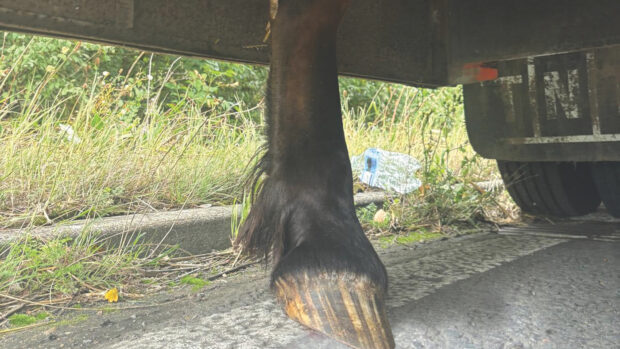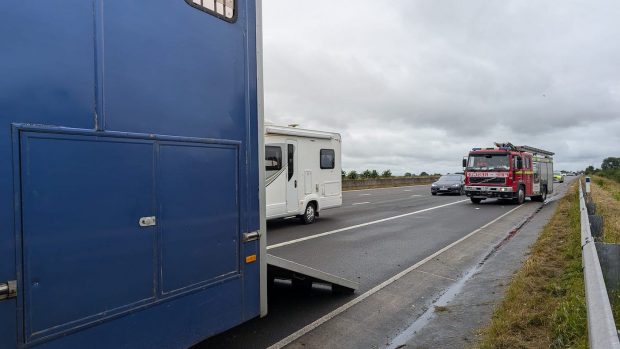Q: A friend and I are taking our horses to Holland in November for a dressage clinic and are looking for advice about paperwork and microchipping. We’ll be using our own transport to get to and from Holland and will be away for approximately nine days, going by ferry from Dover to Calais.
ID, Saffron Walden
ACCORDING to the Department for Environment, Food and Rural Affairs (Defra), sorting out the paperwork to take a horse or pony to Holland is a fairly simple procedure.
“An intra trade animal health certificate [ITAHC] is required to comply with EU animal health legislation. This can be applied for through the local office of Animal Health, a Defra agency,” says a Defra spokesperson.
“The application must be made at least 10 working days before commencement of your journey. The application form must mention which government-authorised official veterinarian, currently known as a Local Veterinary Inspector [LVI], will sign the certificate.
“An export licence is also required and can be applied for via Defra HQ’s horse and pony export licensing team in London. Applications must be received a minimum of seven days before travel, to allow time for processing. Ponies also have to be worth a minimum value. The values are £300 for ponies over 122cm and up to 147cm; £220 for ponies up to 122cm and Shetland ponies over 107cm; £145 for Shetland ponies up to 107cm.
“Evidence of a pony’s value should be provided in the form of documents such as insurance certificates or bills of sale when submitting the application for the export licence. If such proof of value is not available, then a copy of the letter of invitation from the event organisers may be provided.”
To comply with the requirements of the ITAHC, horses and ponies must be inspected by the LVI within 48hr of departure. While it is advisable for all horses travelling abroad to be microchipped, this is not a legal requirement under EU law for short-term journeys, except for Thoroughbred racehorses, although according to Defra the microchip issue is being discussed at EU level.
In terms of the journey itself, plan for every eventuality. Thoroughly check the vehicle yourself and preferably take it to a horsebox specialist for a safety check.
Take an info pack with you with breakdown assistance information, all relevant contact details, including emergency numbers, your horse’s paperwork and passport — with the declaration in section IX signed by the owner or their representative and countersigned by the passport issuing organisation — and a charged mobile phone.
Plan your route carefully, taking into account access for high vehicles, and always allow extra time for your journey. Consider investing in GPS navigation and make sure you have good directions.
You could take any spare tack that might come in handy, plus previous dressage test comments that may be useful for the trainer’s reference.
Information
Defra Tel: 08459 33 55 77 www.defra.gov.uk
This Q&A was first published in Horse & Hound (20 September, ’07)



